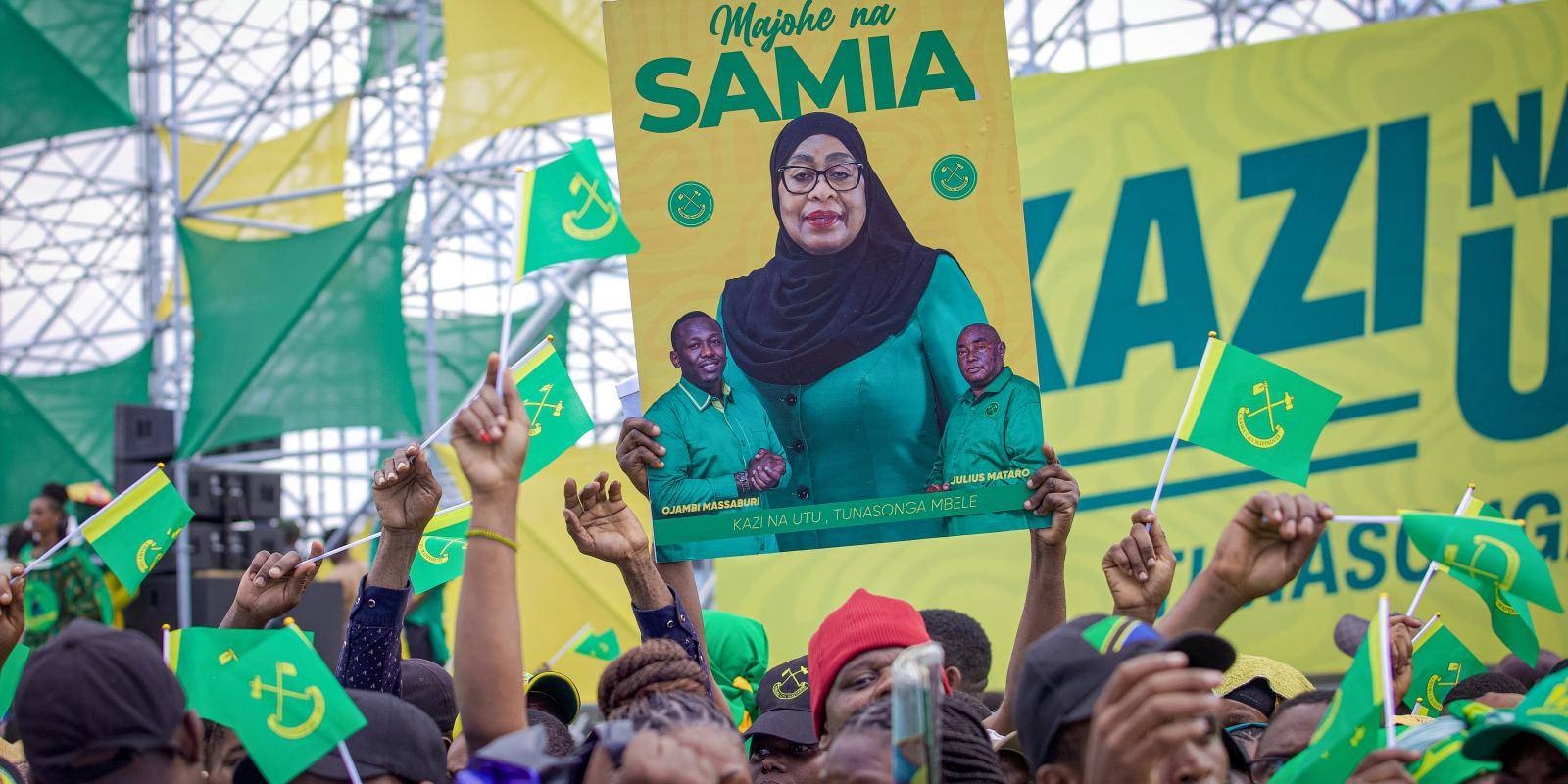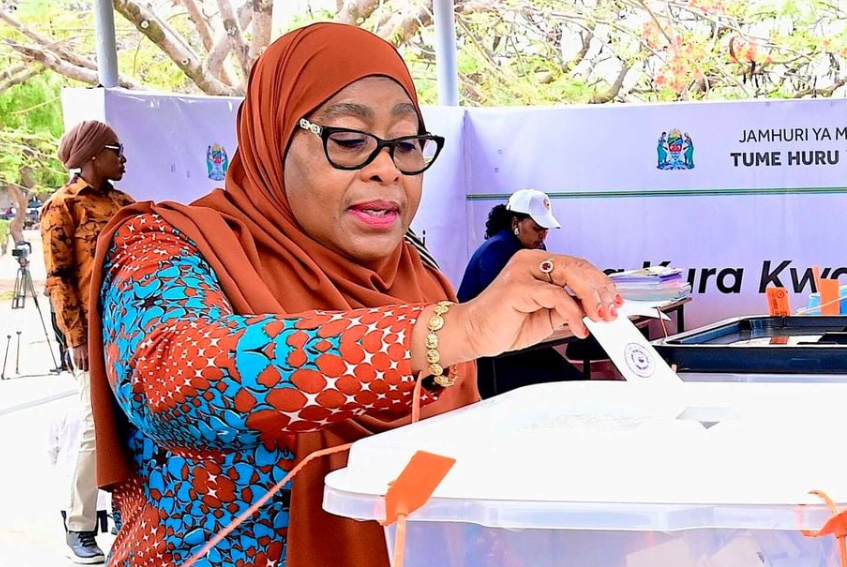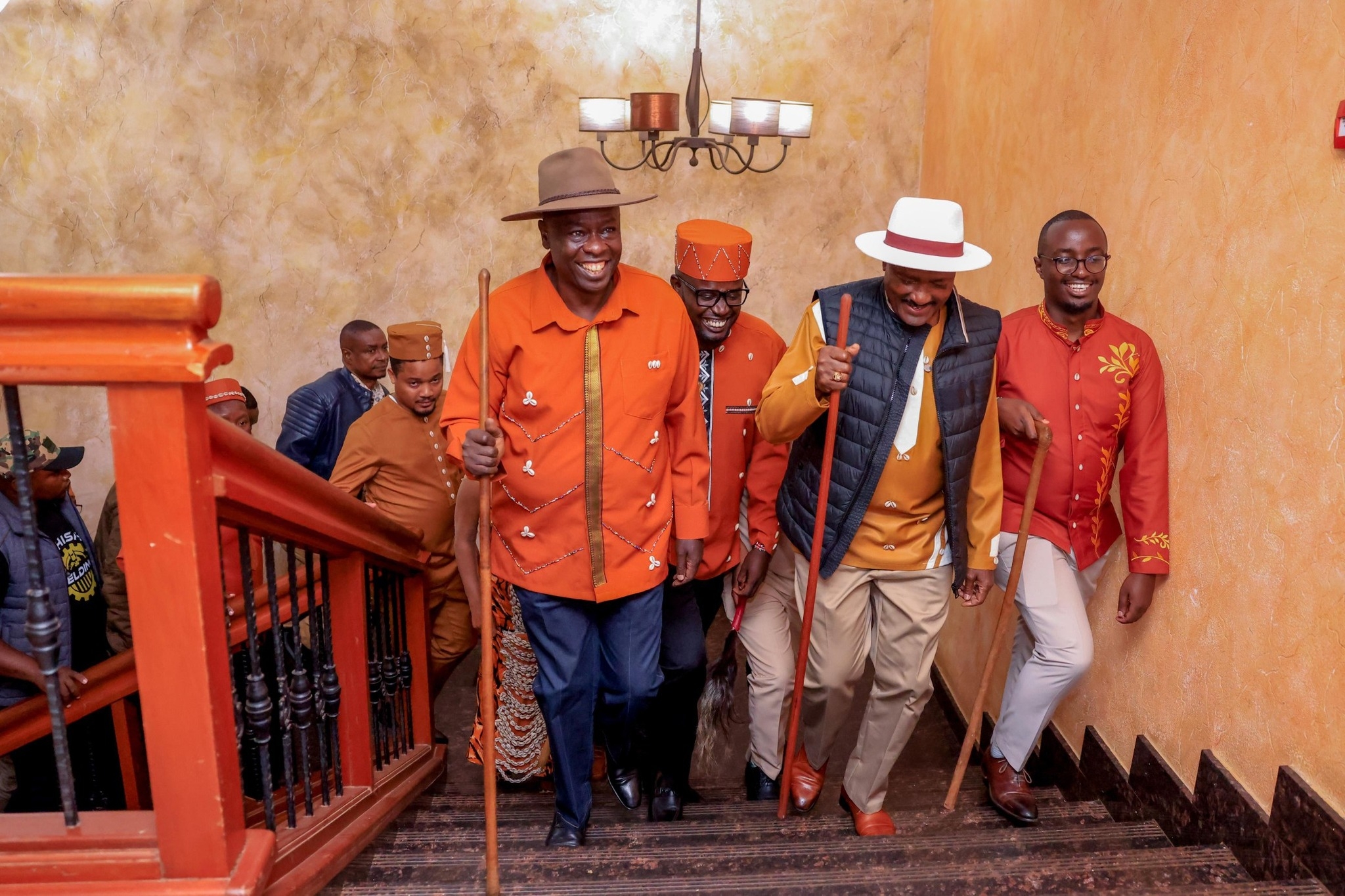

Tanzania’s President Samia Suluhu Hassan has set history by being elected with a near 98 per cent victory in one of the most chaotic polls in history of the country.
On Saturday, the Electoral Commission declared that Samia, who rose to power in 2021, received more than 31.9 million votes, or 97.66 per cent of the total, handing her a five-year term.
The National Electoral Commission announced that 32.67 million of 37.7 million registered voters participated in the exercise that was marred by violence.
This represents 86 per cent turnout despite the chaos that began on election day on the October 29, 2025, when some polling stations were attacked and ballots burned.
However, both the turnout and Samia’s votes have raised eyebrows, given that in the past polls, Tanzania averaged about 70 per cent voter turnout in the last 20 years.
International observers noted an extremely low voter turnout, with reports of largely empty polling centres, yet INEC’s figures tell a different story.
The credibility of the process was further undermined when demonstrators, in acts of defiance, were filmed stealing ballot boxes and scattering ballots, making it almost impossible to achieve such a high turnout.
In 2015, Tanzania had 23.2 million registered voters with John Magufuli securing 58.46 per cent against opposition leader Edward Lowassa’s 40 per cent in the polls that had a turnout of 67 per cent.
During his re-election in 2020 held amid restrictions on opposition campaigns and limited observation due to the Covid pandemic, Magufuli received 84 per cent victory against Tundu Lissu’s 13 per cent (1.9 million votes).
The 2020 turnout was marked at 51 per cent.
In 2005, Tanzania had 15.9 million registered voters, where Jakaya Kikwete won 80.28 per cent in an exercise that recorded a 72 per cent turnout.
In 2010, Kikwete secured a second term at 62.83 per cent while opposition candidate Willibrod Slaa received 27.05 per cent. The turnout also dropped to 51 per cent.
Going by the data from the past four elections, President Samia has joined a club of leaders who are controversially elected with huge numbers when poll observers and opposition groups declare that the exercise was neither fair nor free.
Two main opposition contenders, Tundu Lissu, who is being held on treason charges and Luhaga Mpina of the ACT-Wazalendo party, were excluded on legal technicalities from the polls.
Opposition parties rejected the results, calling the vote a mockery of the democratic process as Samia's main challengers had been either imprisoned or barred from running.
International observers have expressed concern over the lack of transparency and widespread turmoil that has reportedly left hundreds of people dead and injured.
The European Parliament has declared Tanzania’s general elections cannot be considered free or fair, pointing to a climate of repression, intimidation, and the systematic dismantling of civic space ahead of the polls.
“These elections cannot be regarded as free and fair. The fraud did not begin at the ballot box—it has been unfolding for months. We urge all democratic partners to stand firm in the defence of democracy and human rights. Silence is not neutrality—it is complicity,” the statement issued in Brussels read.
The elections were held amid a nationwide internet shutdown following the chaos that was witnessed in the major cities of Dar es Salaam, Dodoma, Mwanza, Arusha, Mbeya and others.
Tanzania is yet to formally release data on the number of casualties.
A spokesperson from the opposition Chadema party on Friday told AFP news agency that "around 700" people had been killed in clashes with security forces, while a diplomatic source in Tanzania told the BBC there was credible evidence that at least 500 people had died.














